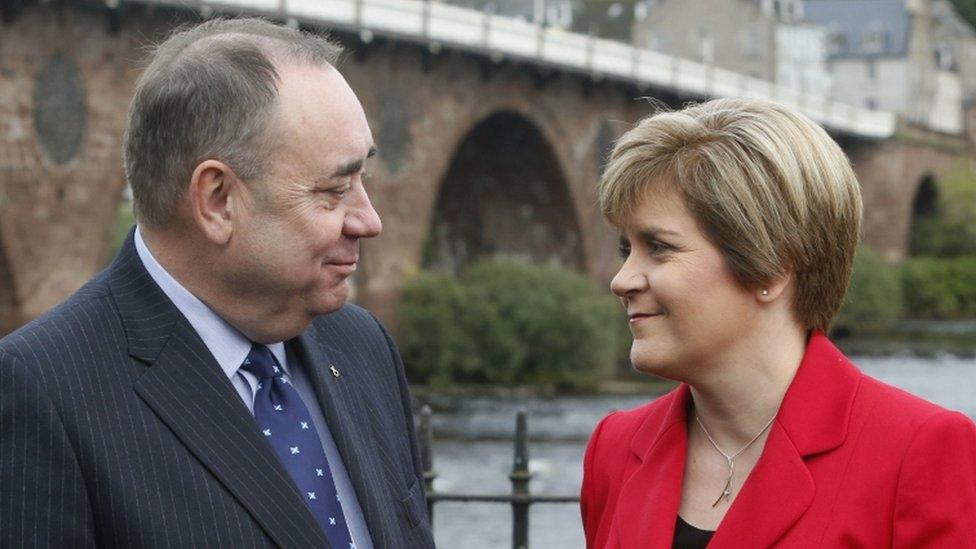SNP chief denies 'plotting downfall' of Alex Salmond
- Published
Peter Murrell: "The timeline would say no, because he [Alex Salmond] had been charged by the time I sent those messages."
SNP chief executive Peter Murrell has insisted that claims he was part of a plot to ensure the downfall of Alex Salmond are "not true".
Mr Murrell - husband of First Minister Nicola Sturgeon - was giving evidence to a Holyrood inquiry into the handling of complaints against Mr Salmond.
He insisted Ms Sturgeon had not told him any details about her meetings with Mr Salmond at their home in Glasgow.
He said they had "very limited personal time" together due to her job.
The SNP chief was also questioned about text messages he sent about the police investigation of Mr Salmond, and insisted that there had been "no pressure" put on officers.
The Holyrood inquiry was set up to review the government's handling of internal complaints against Mr Salmond after he successfully raised a legal challenge against its investigation processes.
The government was forced to pay the former first minister more than £500,000 in legal expenses after it conceded its approach had been "unlawful" due to a procedural flaw.
The committee is now reaching its final hearings, with both Mr Salmond and Ms Sturgeon due to give evidence in the coming weeks - although members have repeatedly complained that their work is being hindered by "obstruction" and "obfuscation" by key players.
Ms Sturgeon held a meeting with Mr Salmond at the Glasgow home she shares with Mr Murrell in April 2018, when she says she learned of the detail of the complaints against her predecessor.
Mr Murrell, who has been chief executive of the SNP since 2000 and married to Ms Sturgeon since 2010, told MSPs that he was at work at the time of the meeting.
And he said he had known not to press his wife for details because of her role as first minister.
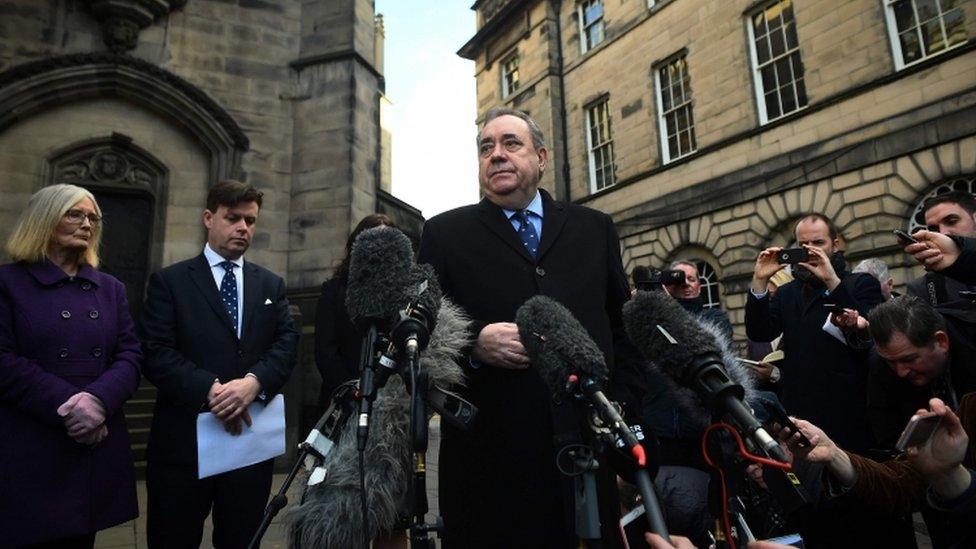
The Scottish government was forced to pay Alex Salmond more than £500,000 in legal costs
When told by Lib Dem Alex Cole-Hamilton that this was "hard to believe", the SNP chief said the life of a first minister was "up early in the morning, back late at night, lots happening in between - very limited time at home, very limited personal time".
He added: "When you are married to the first minister, who is privy to lots of information, when she says she can't talk about something you don't continue to say 'ah, but'. It just doesn't happen.
"She's been a minister for a long time and works very hard, every day and every weekend - when we get precious time together the last thing we want to be doing is re-running days with each other.
"When she says she can't talk about something, that's the end of it, and we move on to something else - like what book she's reading, or what I'm making her for her tea."
'Direct conflict'
Mr Murrell was pressed repeatedly about whether the meetings between Ms Sturgeon and Mr Salmond were SNP business, as the first minister has insisted, or government business - which would need to be officially recorded.
He said that prior to the first meeting, Ms Sturgeon "thought it was a party matter", but that it then became clear that it was "a Scottish government matter".
Labour MSP Jackie Baillie put it to Mr Murrell that there was a "direct conflict" between his evidence and that of his wife, to which he replied "I don't accept that".
Scottish Tory MSP Murdo Fraser said this evidence had "sunk" Ms Sturgeon, adding: "Peter Murrell's words indicate that Nicola Sturgeon misled parliament, gave false evidence to the committee and broke the ministerial code."
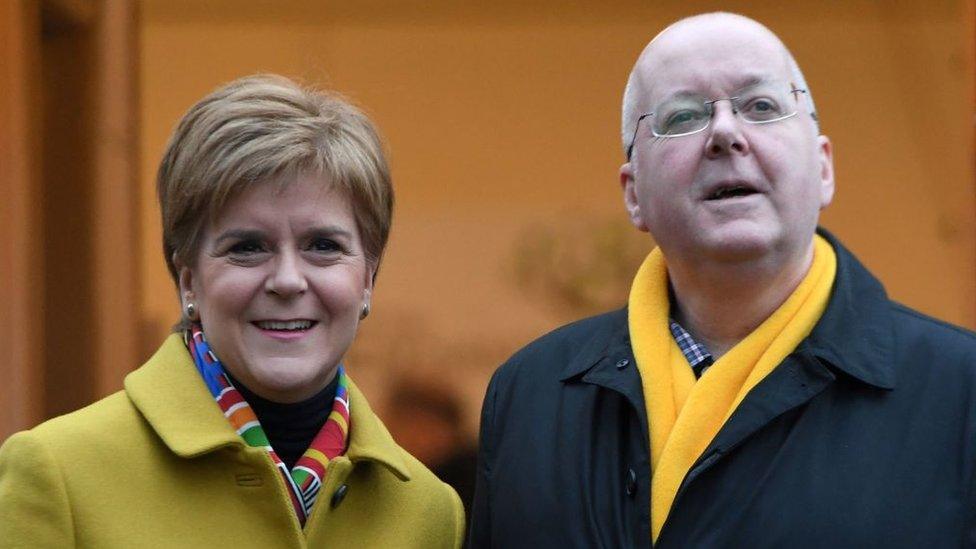
Peter Murrell said Nicola Sturgeon is afforded "very limited personal time" as first minister
Mr Murrell said he had worked with Mr Salmond since the early 1980s, and had had "very few" concerns about his behaviour over the years.
He said Mr Salmond "had very high expectation and could be difficult" and "unreasonable", but said there had been "nothing of any sexual misconduct nature".
He said they had a "professional" relationship, but had not spoken since the 2017 election where Mr Salmond lost his Westminster seat.
Asked if the former first minister had been "hard done by", the SNP chief replied: "I think complaints came forward and they had to be investigated and looked at - by political parties, by the government, by the police. Those are proper processes to have happened with concerns that are brought forward."
'I worry about the women'
Mr Murrell was also pressed about text messages he sent in January 2019, the day after Mr Salmond was charged with sexual assault - charges he was ultimately acquitted of following a High Court trial.
One message suggested that "folk should be asking the police questions", and that it was a "good time to be pressurising them", while another said that "the more fronts he [Mr Salmond] is having to firefight on the better".
Mr Murrell said he could "see that the language I used was open to misinterpretation", saying there had been "a great deal of upset that day".
He insisted that there "was no pressure" put on police, adding: "We were all shocked by the scale of the charges that were being brought against him. You can imagine everyone was quite gutted.
"The context was that some people that had raised concerns had questions, they were seeking answers to things that only the police or Crown Office could answer."
Asked about the text referring to Mr Salmond "having to firefight" on multiple fronts, Mr Murrell said: "I think I've worried - I worry all the time about this still - I worry about the women. That's what that's about."
Asked by Ms Baillie whether the texts were evidence that he was "part of a plot to ensure the downfall of Alex Salmond", Mr Murrell said "no, it's not true - of course it's not true".
He said: "The timeline would say no, because he had been charged by the time I sent those messages. All complainers had come forward by that point, the police had charged him, and he had appeared in court."
Related topics
- Published8 December 2020
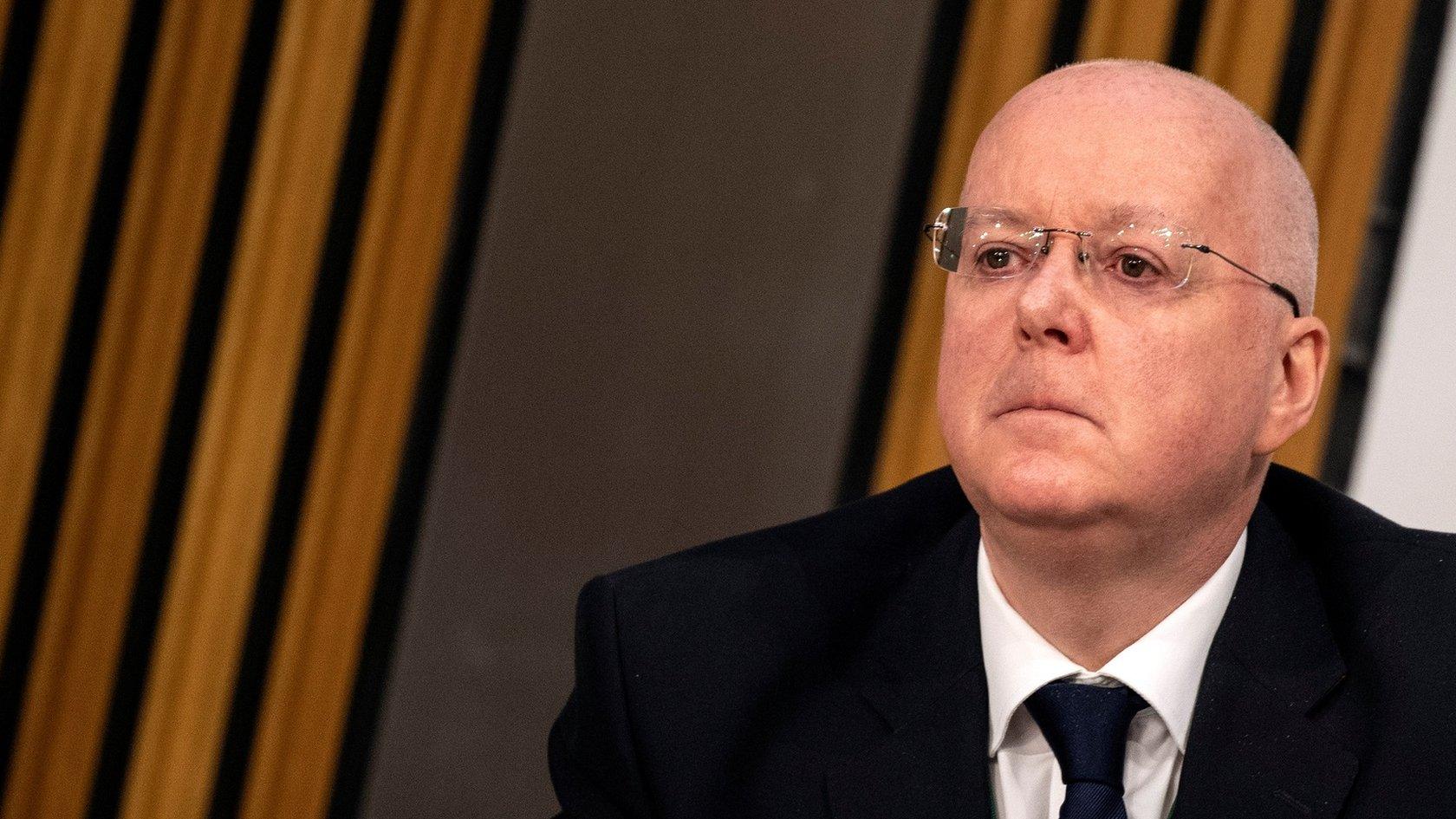
- Published1 December 2020
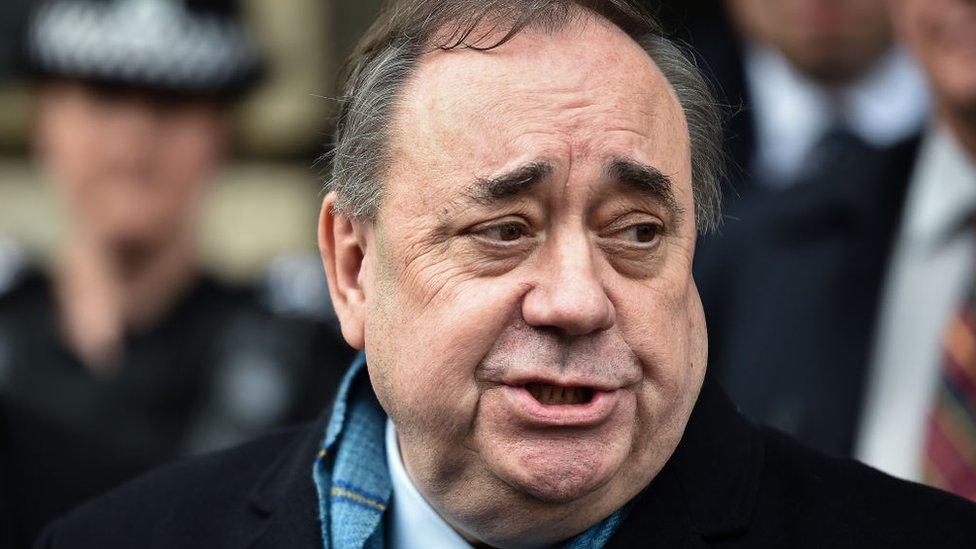
- Published12 November 2020
